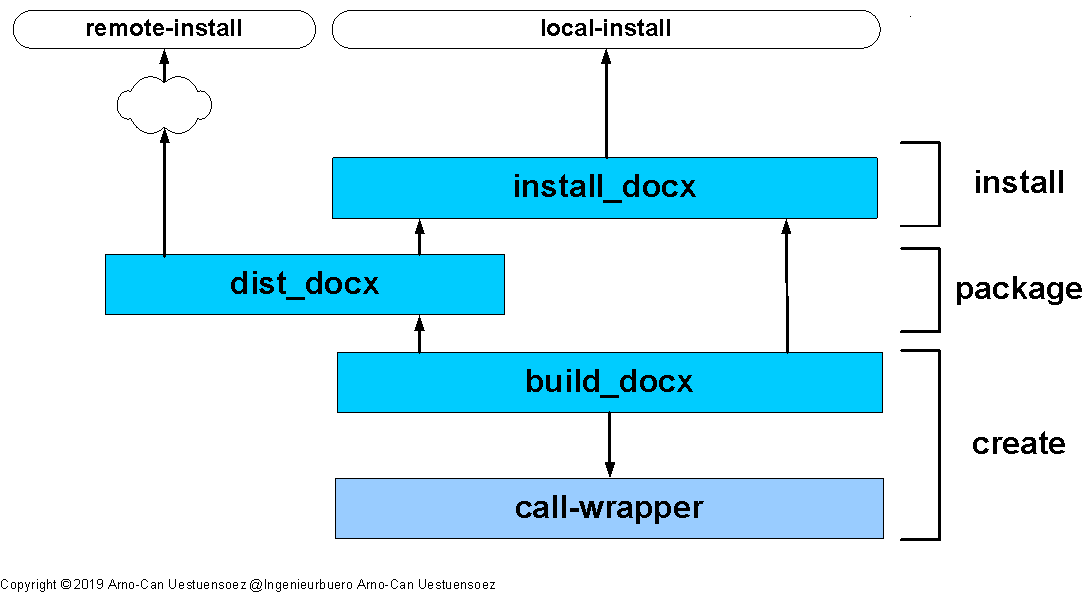1. Abstract¶
Modern landscapes of information infrastructures are commonly designed and organized as stacks of runtime service environments. The technical architecture of the service stacks consists of a wide range of heterogenous landscapes of components frequently requiring adaptation and mediation - resulting in a landscape of apps for the creation and installation of developer and user documentation.
The setupdocx supports document creation, packaging, and installation commands for various tools and output options as a single unified interface. This adds the ability to switch easily between various pre-configured document configurations of presentation and content variants. For example in case of Sphinx and Epydoc it is easy to switch between themes, templates, and styles, as well as configuration files by just one call parameter.
The initial provided components for standard tools support:
setuptools - setup.py [setuptools]
build_docx - create documentation
install_docx - install documentation locally
dist_docx - create distribution archives and packages
The following sub commands of build_docx are also available as standalone versions:
build_apidoc - extract API documentation as standard document by sphinx-apidoc
build_apiref - extract API documentation in javadoc style by epydoc
Sphinx [sphinxdoc]
Call wrapper for sphinx-apidoc and sphinx-build / Makefile - call_doc.sh and call_apidoc.sh.
Sphinx extensions:
sphinx.ext.imagewrap - extend images with builder tags, povide dynamic search paths
sphinx.ext.literalincludewrap - povide dynamic search paths for the include directive
Epydoc [epydoc]
Call wrapper for epydoc - call_apiref.sh.
These are supported as the platform for the creation of the documentation distributions, once the distribution packages are created, setupdocx is no longer required, see Build and Target Platforms.
For more on extensions refer to [setuplib], and [setuptools] . For tested standard OS and distributions see help on installation / Tested OS and Python Implementations.
